Whether they make bikes or boots, pans or purifiers, manufacturers find ease of mind back in U.S.
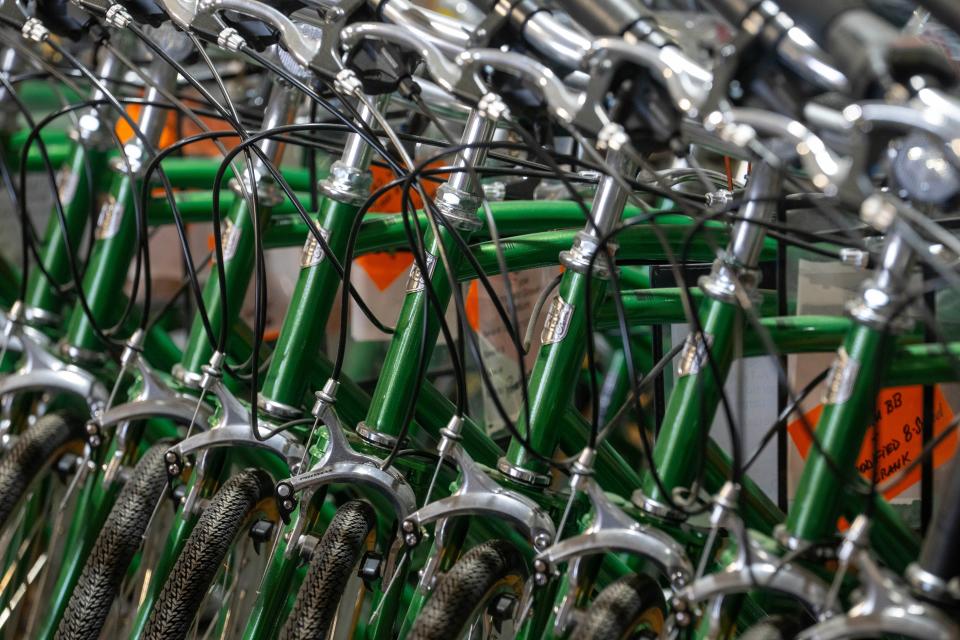
Americans have long accepted, even come to expect, that products in their everyday lives are made overseas. But some of that manufacturing has returned home, and some never completely left. Among the benefits for businesses are quality control and the satisfaction of connecting with customers willing to pay for a product made in their own country.
Here are some examples.

More than 1,000 shoe factories shut down. Weinbrenner did not.
Weinbrenner Shoe Co., has made Thorogood boots in Wisconsin for more than 130 years. Some of its earliest catalogs showed hobnailed shoes for quarry workers and manure-proof uppers for farmers.
The company, based in the central Wisconsin city of Merrill, has some production in Asia and Central America. But executives said 80% of its boots are made in the United States. Some of its less expensive footwear and specialty boots are made in other countries.

“We've really been diversifying away from Asia,” said Rob Burnett, senior vice president of operations.
Weinbrenner traces its roots to Milwaukee when German immigrant Peter Weinbrenner opened a cobbler’s shop in 1855. His son, Albert, built a shoe factory at East Juneau Avenue and North Market Street, with a power plant in the basement solely for the factory’s electric needs.
The company, incorporated in 1892, moved from Milwaukee to Marshfield, not far from Merrill, in 1935 when a delegation from the city proposed building a factory and leasing it out for a nominal amount. About a year later, Merrill made Weinbrenner a similar offer and the company added a second factory.
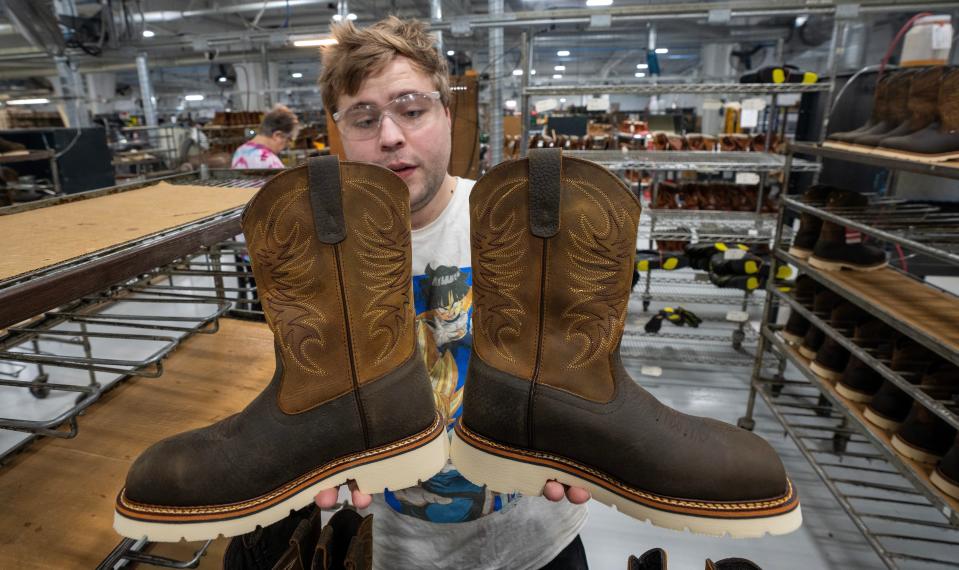
Weinbrenner, and Port Washington-based Allen Edmonds Shoes, have kept shoe making in Wisconsin while much of the industry left the U.S. decades ago.
“Since 1980, more than 1,000 shoe factories have shut down,” said Weinbrenner President Jeff Burns.
Weinbrenner was on the verge of becoming a casualty of foreign competition until 1988 when a group of area business leaders bought the company. In 2000, they sold it to the employees under an Employee Stock Ownership Plan, or ESOP, which remains in effect today.
But hard times continued for the manufacturer, which was best known for leather boots that were often compared with the boots made by Red Wing Shoes across the border in Minnesota. “There were a lot of tough years. I mean, we made bowling shoes, golf shoes, anything we could do to survive,” Burns said.
Factory automation helped keep production in Wisconsin, along with government contracts requiring made-in-the-U.S. products.
Generations of families have worked in the Merrill and Marshfield factories. When the company is in local parades it hands out socks, not candy. The American flag on its boots is a selling point for consumers, and the union shop status appeals to the skilled trades.
“But we can’t just put a flag on something and expect people to support it. We’ve got to make the finest boots in the world,” Burns said.
He credits the workforce.
“Their skill and commitment are now recognized all over the world. It’s the reason this company continues to grow, and it’s the reason we will be here for another 130 years,” Burns said.

Hand-welded steel frames in the Motor City? No, these are not cars.
Detroit automakers put America on four wheels. Now, in an old factory near an automotive scrapyard, a company called Detroit Bikes has staked its claim in the bicycle industry.
Part of Cardinal Cycling Group of Little Rock, Arkansas, Detroit Bikes is an anomaly among U.S. bicycle companies, which largely took their manufacturing overseas decades ago.
In a nod to the Motor City’s muscle car heritage, Detroit Bikes makes classic steel-frame bicycles for everyday use on city streets and bike paths. Under a licensing agreement, the company has even produced a limited edition Schwinn Collegiate in the venerable "campus green," with a step-through frame.
A huge boost in bicycle sales during COVID fueled growth at Detroit Bikes and others in the industry.
Detroit Bikes has 3-speed bicycles with simple, sturdy shifters, that sell for around $500. The company has worked with schools, breweries and other organizations that want their name or logo displayed on the bikes.
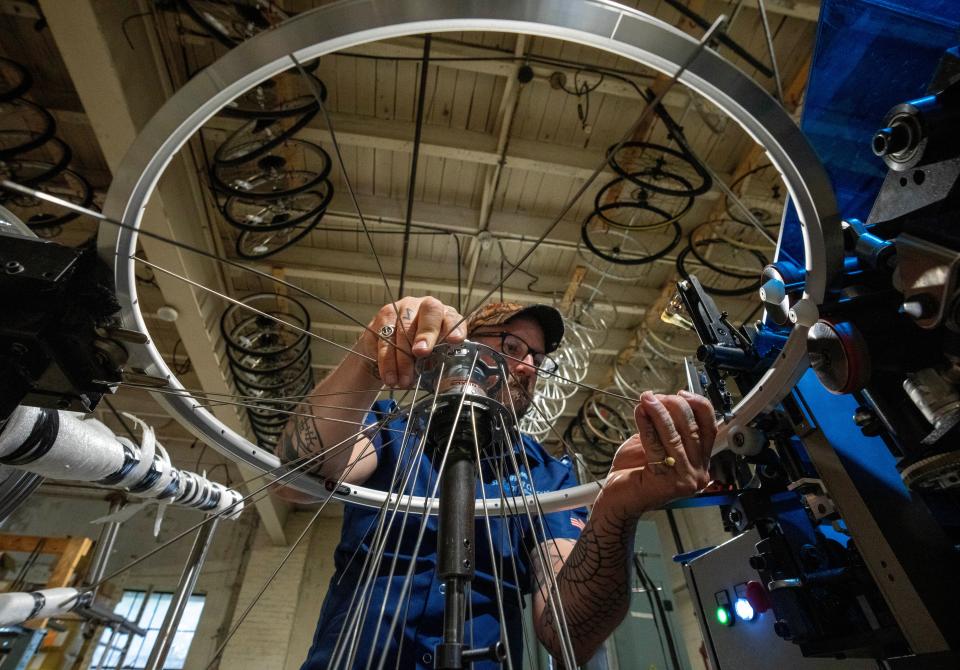
Its steel frames are hand-welded in the factory about 10 miles west of downtown. The wheels are assembled individually as well.
Detroit Bikes is tiny compared with Wisconsin-based Trek Bicycles, which builds most of its bikes in Asia and elsewhere outside the United States. But it’s not a boutique bike builder that serves niche, higher-end markets. Even if the company becomes more focused on expensive and electric bicycles, said General Manager Gary Thornton, it’s not going to leave the U.S. or abandon its established customers.
“They are what brought us to the dance," he said. "If twenty years from now somebody could pull one of these Detroit three-speeds out of a garage and ride away, just like they’d do now on an old three-speed Schwinn, I’d be pretty happy with our legacy."

Cookware made in Wisconsin offers 'true craftsmanship'
In some circles, Wisconsin is to cookware what Detroit is to automobiles.
Mirro Aluminum Company, founded in 1909 in Manitowoc, was once one of the world’s largest manufacturers of cooking utensils, before leaving Manitowoc around 20 years ago. Regal Ware, of West Bend, has a history of continuous manufacturing of cookware dating back to the early 1900s.
A relative newcomer, 360 Cookware, has made products in West Bend nearly 20 years.
“There’s really not a lot of us left anymore, of true, honest-to-goodness American cookware manufacturers,” said 360 founder Bryan Hurley.
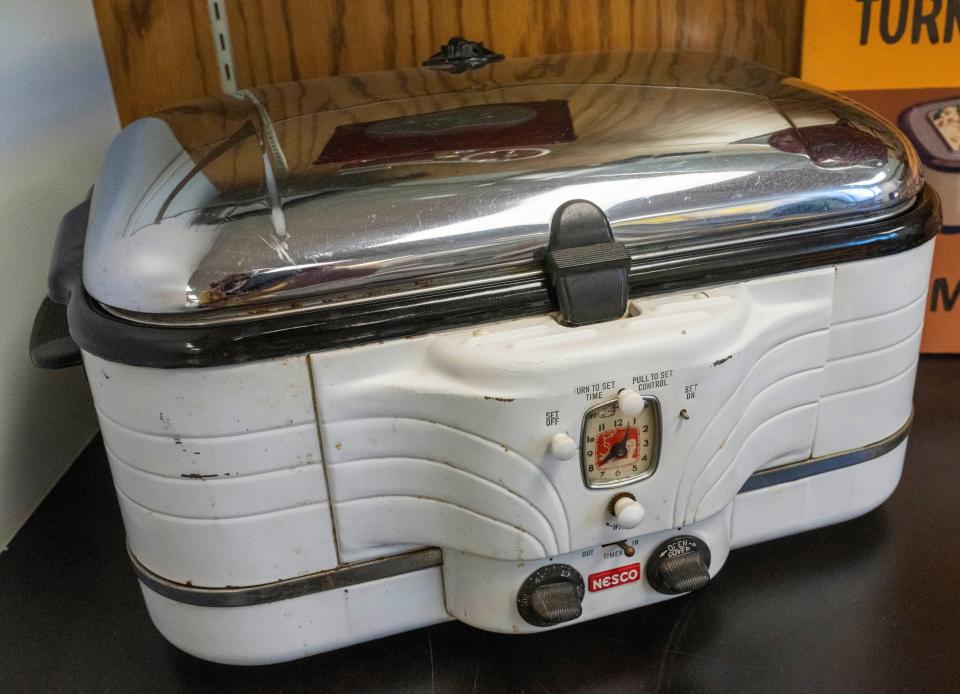
Now, 360 Cookware has found a niche with a line of high-end cookware popular in the U.S., Japan and Latin America.
“I would bet that every time I sell one of our products to any English-speaking customer, there are at least 30 Spanish-speaking customers who have bought the same thing,” Hurley said.
The company’s products are almost entirely hand-crafted in the U.S., but it hasn’t claimed a coveted Made-in-the-USA label because since 2019 it was "forced to outsource bonded (metal) materials from South Korea,” Hurley said. “While we are huge believers in bringing manufacturing back to the USA, in this scenario, it was simply not an option.”
Hurley could plead his case before the Federal Trade Commission, but the legal fees would be costly and there’s no guarantee he would prevail. For now, he'll wait, and instead offers tours of the West Bend factory where customers can see for themselves how the products are made.
The plant is a small operation with only about 20 shop-floor employees. Retirements will eventually become an issue since it’s difficult to find young people in the skilled trades.
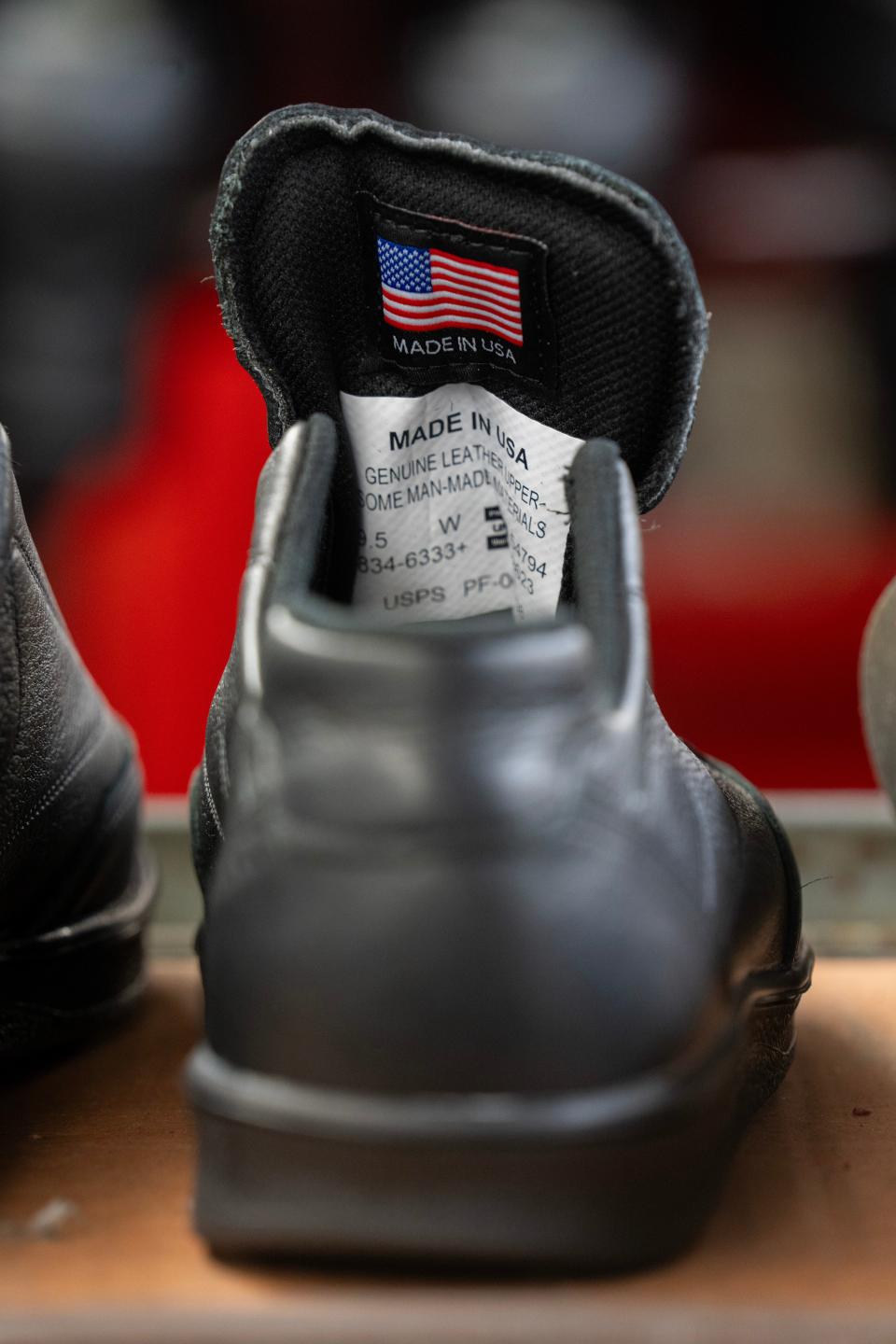
“It’s true craftsmanship,” Hurley said.
The company's U.S. manufacturing has been noticed in industry circles.
"In terms of companies coming to me looking for a made-in-the-USA solution, I’ve had more interest in the last two years than the last 20 combined,” Hurley said.
The company was started in 2004 by a small group of workers who lost their jobs when the former West Bend Company, which made cookware and appliances, was sold to a firm that moved manufacturing to China.
The group refurbished 250-ton presses used to make ammunition during World War II.
Hurley's father, Dave, was among them. He started in the cookware business in the late 1960s after dropping out of high school to enlist in the Marine Corps. He returned home from the Vietnam War as a decorated Marine but struggled to earn a living until he got into cookware sales.
Bryan said he’s proud to follow in his father’s footsteps.
"I always tell people I was born in a one-quart pan. It's the only business I've ever known," he said.

By reducing the number of manufacturing steps, costs went down
Peter Mann knows how difficult it is to sever manufacturing ties with China. As founder of the Oransi air purifier company, he tried in 2012, but the cost of making things in the U.S. was simply too much.
The quality of the U.S.-made product was better, but "it priced most people out of the market,” Mann said.
However, this spring he opened a factory in Radford, Virginia, home to Radford University and nearby Virginia Tech University in Blacksburg. It started out with about 30 employees, but there’s plenty of room to grow in the 157,000 square foot plant, which previously was a Volvo truck distribution center.
“Going forward, we’re making everything here,” Mann said.

His reshoring solution, after making his products in China for more than a decade, was to reduce the number of manufacturing steps.
“We started from scratch,” Mann said. The upfront cost for the tooling was high, but in the long run, the payoff will be in products that are cost competitive with Asia.
A redesigned electric motor for the air purifiers that’s more powerful and quieter was at the heart of the change. It’s also going to drive future home appliance products for the company, Mann said.
He started Oransi in 2009 in Austin, Texas, seeking a solution for his infant son’s asthma. Three years later he found a manufacturer in Connecticut, but it couldn’t compete with the lower costs in China.
However, southwest Virginia had electric motor companies and a wealth of talent from Virginia Tech and New River Valley Community College.
Mann partnered with one of those companies and moved his business to Radford. The work was needed in the city, which had lost furniture-making jobs to China.
Mann's goal is to increase the plant’s employment to about 100 people, making air purifiers and other products using the same motor technology.
A former Dell Computer executive, Mann was raised in upstate New York in the 1980s, where he saw the loss of manufacturing jobs to China.
“For me, personally, it’s rewarding to see things go back the other way,” he said.

KI, a global company, has a local supply chain
KI Furniture, based in Green Bay, is one of the world’s largest manufacturers of furniture for schools, offices and healthcare facilities, yet the main factory gets most of its materials from Wisconsin.
The plant’s employees, some of them farmers as well, are from the Green Bay area, including small towns such as Allouez, Denmark, Holland and Pulaski.
Worldwide, KI has nearly 3,000 employees, but it remains employee-owned and not beholden to Wall Street. The company was founded in 1941 as Krueger Metal Products to make basic folding chairs from scrap metal, about as modest a start as a company with global reach could have.
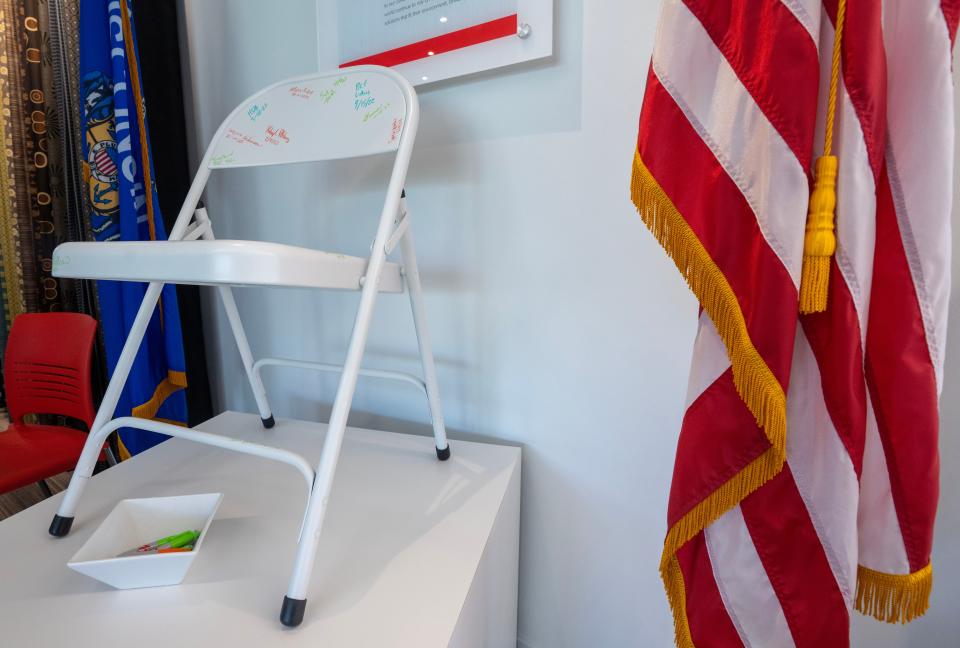
Not long ago, KI reshored the manufacturing of an important product in its business – heavy metal carts used to haul stacks of folding chairs – from China.
“It was a humbling experience and it worked out well,” said Operations Director John Kersten.
KI, unlike some manufacturers with sprawling supply chains for materials and services, does most of its furniture making in-house in its Wisconsin plants, from bending and cutting metal to upholstering, finish work, and final assembly.
“When you can do all these different processes, you control your own destiny,” Kersten said.
Young adults right out of high school sometimes work alongside their parents and grandparents in the furniture plant. College students and farmers are there, too, for the flexible hours and employee benefits.
KI has automated processes where there’s a need and a financial payback.
“But no one’s ever lost their job here because of automation. We need plenty of humans to do everything from start to finish,” Kersten said.
In Wisconsin, the company has plants in Green Bay, Manitowoc, Bonduel and Fort Atkinson. It also has plants in North Carolina and Ontario, Canada.
Some furniture parts, such as chair wheel castings, might come from China. But it’s only a small percentage of the company’s supply chain, according to Kersten.
Nearly everything the company needs is within a half day's drive of Green Bay.
“We prefer to stay with local suppliers where we can make changes fast if we need to,” Kersten said. “Even in a snowstorm I can get what we need the next day.”
The company still makes the ubiquitous folding metal chair it started with prior to World War II. It’s made tens of thousands of chairs for places like the Las Vegas Convention Center, K-12 schools and colleges all over the country.
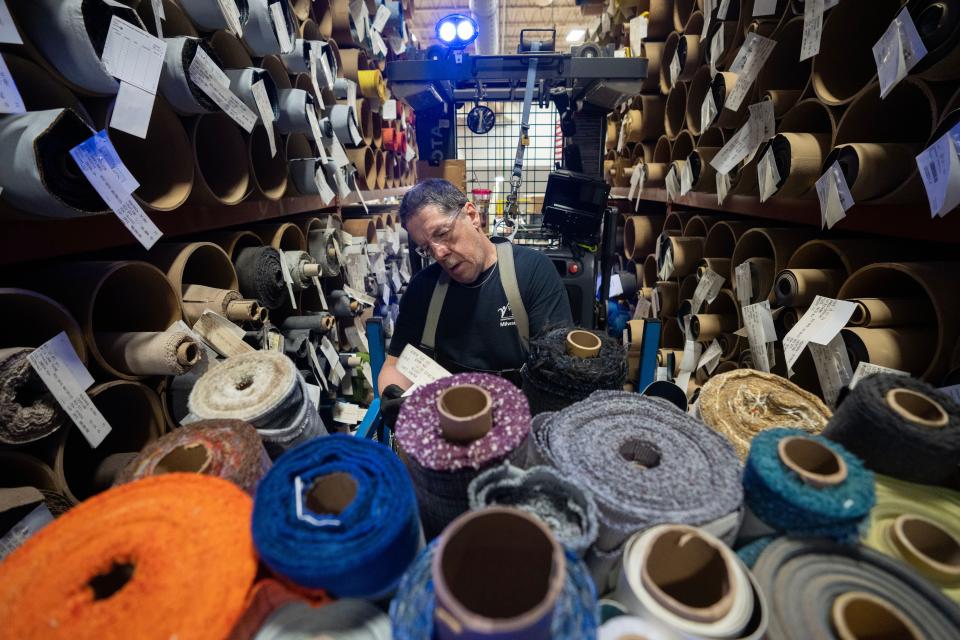
KI has been owned by its 2,000 U.S. employees since 2018 when then CEO Dick Resch and Resch family members sold their 71% stake back to the company, consolidating the shares with the company’s employee stock ownership plan, or ESOP.
An ESOP functions as a trust fund that owns the company. Full-time employees who meet some basic work requirements are granted shares in the fund as part of their deferred compensation. It makes a difference in how people perceive their work, Kersten said.
“If someone’s working on a piece of upholstery here and it isn’t perfect, they will get other people involved to make sure it is, because that’s the face of their company,” he said.

The Bringing It Home series was created with the support of the Pulitzer Center and the Richard C. Longworth Media Fellowship. The Center champions the power of stories to make complex issues relevant and inspire action. The Longworth Fellowship, which was awarded to reporter Rick Barrett and photojournalist Mark Hoffman, is devoted to bringing global issues to Midwestern readers. Neither the Pulitzer Center nor Longworth played a role in the reporting, editing or presentation of the series.
This article originally appeared on Milwaukee Journal Sentinel: Manufacturers find more quality control by making products in U.S.
